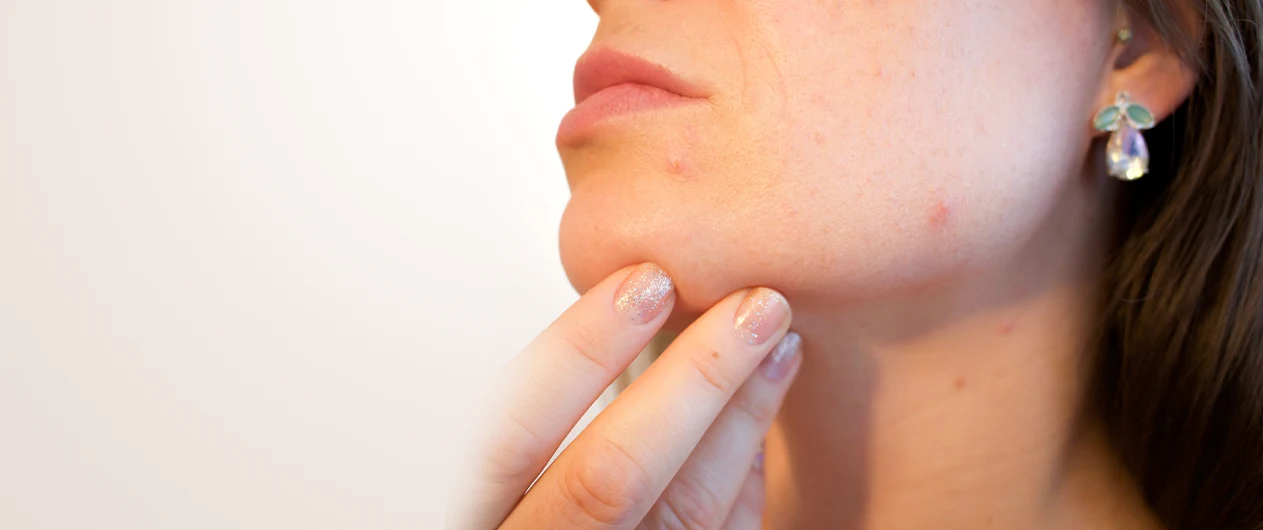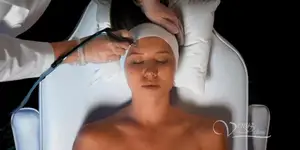
Diet and acne
Acne, what is it?
Acne is one of the most common hormonal-mediated inflammatory skin diseases that manifests itself in the form of rashes.

Among the main causes of acne exacerbations, there are internal (hormonal changes, heredity, diseases of internal organs and systems) and external factors (negative exposure to ultraviolet radiation and environmental factors, smoking, stress and poor eating habits).
Relationship between diet and acne breakouts?
While the relationship between acne flare-ups and diet has not been 100% proven, recent research suggests that certain foods can act as a trigger, which in turn triggers acne breakouts. Therefore, such a thing as an acne diet or a skin cleansing diet has long been in use, both among specialists and among patients.

How does diet affect acne?
In general, improving the skin condition in the treatment of acne, with the help of diet, comes down to four factors:
- Improve the quality and variety of nutrients.
- Normalization of the intestines.
- Normalization of hormonal levels.
- Immunity maintenance
We support our immune system by restoring the barrier function of our intestines, maintaining micro-organisms and hormones, and focusing on micronutrients, which we can replenish with food and special dietary supplements.
Acne flare-ups are also associated with stress, and more specifically with the production of the hormone cortisol, which is also called the stress hormone, as it provokes the active work of the sebaceous glands and the production of sebum, which clogs pores and creates an ideal environment for the development of bacteria and inflammation.
If the information seems a little confusing, don't worry, there is a bonus for you at the end of the article, an example of an acne diet menu.

Remember that proper eating habits, drinking water per day and quality sleep are three important “whales” for cleansing the skin of the face and improving the condition of the body as a whole!
Harmful and useful products. And what prevails in your diet?
As we have already determined, some products can actually provoke the development of acne or aggravate the skin condition in acne. Studies show that these are foods with a high glycemic index (GI).
Glycemic index (GI) - a value that reflects the level of increase in glucose (blood sugar) in response to the intake of carbohydrates.
Carbohydrates are an essential part of our diet as they provide fuel for the brain and most other organs and muscles during any kind of exercise. However, not all carbohydrate foods are the same, some of them provoke so-called skin problems.
High glycemic carbohydrates
- High glycemic index carbohydrates cause blood sugar levels to spike and then fall, while low glycemic index foods are digested and absorbed more slowly. This slow release of glucose into the bloodstream has been proven to be far more beneficial to the body, from increased energy levels to weight control, diabetes and other health issues.
Three levels of glycemic index
- Low: 55 or less
- Medium: 56-69
- High: 70+

Products not recommended for acne
Foods with a high glycemic indexexom, which are recommended to be excluded from the diet for acne or limit their use, for clear skin without rashes:
- beer;
- bread (especially white);
- sweet breakfast cereals and instant cereals;
- potatoes;
- white rice;
- cookies, cakes, sweets;
- chips and crackers;
- sweetened carbonated drinks;
- sweet fruits and dried fruits;
- sweet yoghurts;
- hot spices and spices.
Products recommended for acne
In contrast to not recommended foods for acne, there are foods recommended for consumption (with medium and low GI), these are foods such as:
- legumes;
- green leafy vegetables, herbs;
- fresh vegetables and fruits (in moderation);
- berries;
- nuts;
- flax and sesame seeds;
- oils: linseed, sesame, rapeseed, corn, hemp (high in Omega-3 and Omega-6 polyunsaturated fatty acids)
- seafood and seaweed;
Drinks and acne
We have all heard the need to maintain water balance throughout the day, but not everyone interprets this information in the same way. When doctors and nutritionists talk about maintaining water balance, they mean clean water that our body needs, and not sugary carbonated drinks and packaged juices, which are highly recommended not only for acne, but in general, for any person who cares about your health.

Recommended drinks:
- clean water (without gas);
- green tea;
- freshly squeezed juices (in moderation).
Drinks not recommended for acne:
- alcoholic beverages (especially those with a high sugar content);
- canned juices (with sugar content);
- sweet carbonated drinks (Coca-cola, Fanta, Sprite, etc.).

Our bonus!
An example of a weekly menu for acne
Three options for each meal can be combined in any order!
| Breakfast | Lunch | Dinner |
| Coconut oil zucchini omelet, liver pate, arugula salad, avocado and cherry tomatoes+olive oil | Cream pumpkin soup, sourdough bread, baked turkey and vegetable salad + olive oil. | Baked fish (white or red) with sweet potato, mung bean salad + cherry tomatoes and pumpkin seeds + sesame oil. |
| Quinoa porridge with berries and almonds + green tea. | Brown rice + salmon (lightly salted or baked), fresh vegetable salad + olive oil. | Braised veal with vegetables+fruit drink or green tea |
| Whole grain bread, avocado, boiled egg (poached egg), arugula and baked pumpkin salad, pumpkin seeds + pumpkin oil. | Buckwheat with liver stew in cream, boiled beetroot salad with walnuts + grape seed oil. | Baked turkey with vegetables and brown rice + olive oil. |
Such a balanced diet will be effective not only in the treatment of acne, to normalize the functioning of the sebaceous glands and to improve the general condition of the skin, but also to cleanse the body of toxins and maintain the required level of glucose and cholesterol.
Complex acne treatment
Remember, in order to get rid of acne and achieve a stable remission, you need to use an integrated approach that includes a balanced diet for acne with a low glycemic index, adherence to drinking and sleep patterns, proper facial skin care and treatment selected by a qualified specialist.
In order to create an adapted treatment regimen just for you, you need to make an appointment with a dermatologist, since acne requires dermatological treatment. The doctor will be able to choose not only a comfortable treatment regimen using professional procedures, such as peelings, treatment acne BBL and lasblack polishing, but also to draw up an optimal home care scheme, which in total will help you get rid of rashes on your face and improve your emotional state.
For more information about acne, treatments and tips, click here:
Literature
Glycemic Index Research and GI News, the University of Sydney.






